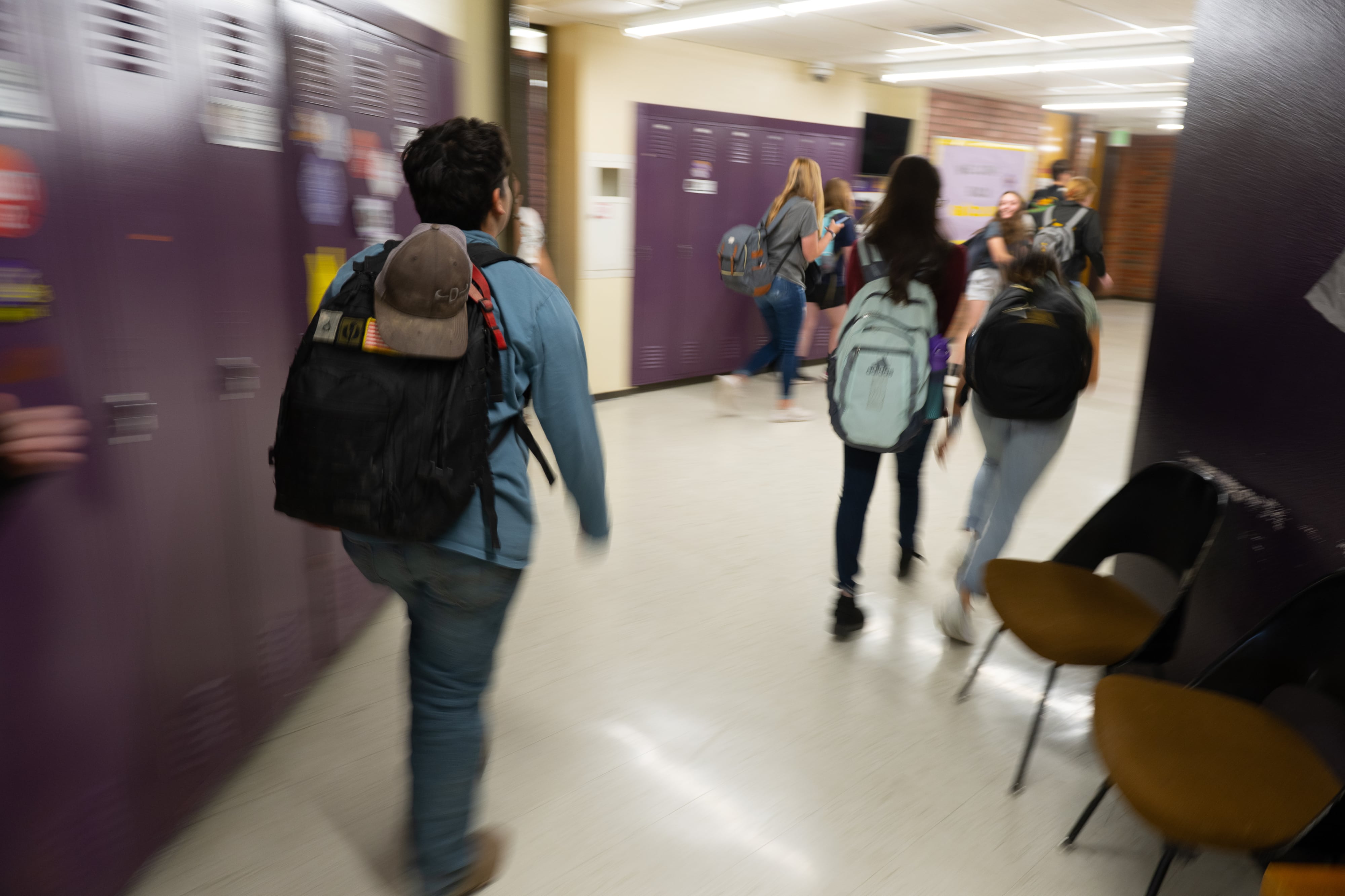Federal education officials are urging schools to reduce rates of suspension and expulsion for students with disabilities, as many schools continue to grapple with higher levels of student stress and misbehavior.
That means schools should be looking closely at their discipline data for disparities, officials said. Schools also should be training staff to help students with disabilities who struggle with their behavior without removing them from school.
“We don’t have to choose between protecting students’ rights and giving schools the tools to identify and deliver safe, appropriate interventions,” Education Secretary Miguel Cardona said on a Tuesday call with reporters. “This work is especially urgent now as our schools and our students and families continue to heal from the pandemic.”
The education department released a series of letters and documents on Tuesday that spell out states’ and school districts’ responsibilities to avoid discriminating against students with disabilities when it comes to school discipline. Top officials underscored that adults contracted to work in a school, such as school police officers, are subject to these rules.
The documents don’t include much new information, and mostly aim to clarify what’s already in federal civil rights laws. But they do serve as a reminder that the Biden administration is watching how schools treat students with disabilities as the effects of the pandemic drag on.
Schools that fail to meet those legal obligations could be investigated for possible federal civil rights violations. If the department finds students’ rights have been violated, schools are typically required to take action to fix the problem.
The guidance package, described as the most comprehensive ever issued on this topic, comes about a year after the Biden administration announced a review of previous school discipline guidance and sought feedback from schools, parents, and others.
But controversial guidance that aimed to limit suspensions and expulsions for students of color — issued in 2014 under President Obama and revoked in 2018 under President Trump — remains under review. Education officials offered no details about whether that guidance would be reissued, and no timeline for when a decision would be made.
Education officials noted that this new guidance doesn’t prevent schools from suspending students with a disability when their behavior is a threat to other students or themselves — likely an attempt to counter potential pushback. The 2014 guidance about racial disparities faced intense scrutiny and some criticism from school leaders and educators who said it took away discipline options that made schools less safe. Some conservatives have said schools don’t need more discipline guidance at a time when they’re dealing with more student misbehavior. And while many schools have hired more mental health staff, they remain in short supply.
The documents include explicit reminders that schools need to determine if a student’s behavior was a result of their disability before issuing a punishment such as a detention or out-of-school suspension.
They also say that schools must sometimes make “reasonable modifications” to avoid discriminating against students with disabilities. That could mean adapting or choosing not to apply certain school rules when a student’s behavior is related to their disability — such as not giving detention to a student for using profanity if they have Tourette syndrome and it sometimes causes them to curse involuntarily.
And the department cautions that students with disabilities shouldn’t be suspended or expelled at all for certain non-violent or subjective misbehaviors, such as being late to class, skipping school, or disrespecting a teacher.
The documents also note the persistent connection between race and disability in school discipline rates. Officials said while they weren’t sure if the pandemic had made those gaps worse, they believed disparities have persisted in recent years. The year the pandemic began, for example, Black children with disabilities made up about 17% of all students with disabilities, but accounted for nearly 44% of students with disabilities who were suspended or expelled for more than 10 school days.
“It’s positive that they’re making those connections for people,” said Rachel M. Perera, a fellow at the Brookings Institution’s Brown Center on Education Policy who has studied civil rights enforcement in school discipline. “But something that seems to be missing is more practical guidance on what that means. OK, if a school district has these types of disparities, how do you go about reducing them? How do you actually address that?”
The guidance urges schools to turn to alternatives to removing students from school, such as providing one-on-one counseling or conducting a more intensive evaluation of a student’s behavior. It also says schools should provide ongoing training and coaching to help staff put these practices into action, and Cardona noted schools can use their federal COVID relief dollars to pay for such activities.
Knowing what to do instead is tricky, Perera said. Suspension rates tend to fall when schools emphasize alternatives to suspensions, but racial disparities in who is disciplined don’t go away.
Behavior challenges were a common theme last school year, as many students adjusted to being back in-person in school buildings with their peers. Many principals noticed an uptick in student fights and classroom disruptions that they attributed to the pandemic, a recent federal survey showed, though a sizable share didn’t see any change compared with pre-pandemic times.
Districts responded to the increase in student misbehavior in divergent ways, too. Some suspended students more often than before the pandemic began, while others suspended students at lower rates. Some districts, like New York City, that tried to continue with efforts to use alternatives to suspensions and expulsions found it especially challenging this past school year, as schools faced a spike in staffing shortages and more conflicts between students.
Kalyn Belsha is a national education reporter based in Chicago. Contact her at kbelsha@chalkbeat.org.






